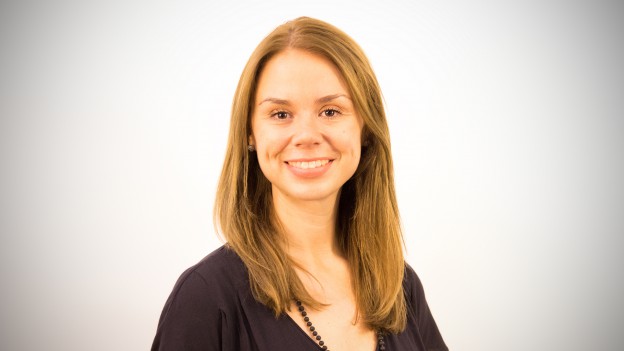Unsere vernetzte Welt verstehen

Co-Creating an Innovative Society with Newcomer Entrepreneurs
Im Interview mit Jessica Schmeiss berichtet Suahyl Chettih über die Herausforderungen einer inklusiven Gestaltung der Berliner Startup-Szene.
SINGA Business Lab ist ein inklusives Inkubator Programm in Berlin. Es hilft Newcomer Entrepreneuren, die häufig unerwartet als Flüchtlinge nach Berlin kamen, dabei, ein eigenes Unternehmen zu gründen und aufzubauen. Das Programm zeichnet sich durch einen innovativen Ansatz der Co-Creation zwischen Newcomer und Lokalen Entrepreneuren, Experten, Forschern, der Berliner Startup Gemeinschaft, und interessierten Managern aus verschiedenen Bereichen aus. Durch diese Co-Creation können Brücken gebaut und innovative Ansätze für eine inklusive Gesellschaft geschaffen werden. Suhayl Chettih, Program Manager des SINGA Business Labs spricht mit uns über die zweite Phase des SINGA Business Labs, Herausforderungen für Newcomer Entrepreneurs in Berlin und Co-Creation einer innovativen, inklusiven Gesellschaft.
The Berlin startup scene as a whole includes more than 2000 startups, with a new startup being founded every 20 minutes. In 2016 alone, more than 200 startups were founded in Berlin. Diversity and an international flair are in the DNA of the Berlin startup scene. 12% of all founders are foreign citizens and 44% of all startups employ an international workforce (Deutscher Startup Monitor, 2016). At the same time, 20.000 individuals came to Berlin in 2016, often unexpectedly as refugees (Tagesspiegel, 2016). These newcomers now seek to build a new life in Germany’s startup capital.
SINGA Business Lab aims to enable these individuals as newcomer entrepreneurs. The program is designed as an inclusive incubator program that allows newcomer entrepreneurs to participate and co-create projects together with local entrepreneurs and partners from the Berlin startup scene. By building on the diverse skills and experiences from the community, all members are able to contribute to a more inclusive and innovative startup scene in Berlin.
Suhayl Chettih, Director and co-founder of the SINGA Business Lab, talks about the second phase of the SINGA Business Lab, challenges for newcomer entrepreneurs in Berlin and co-creating an innovative society.
Jessica: Can you describe the SINGA Business Lab in detail?
Suhayl: SINGA Business Lab is a business incubator in Berlin that focuses specifically on the needs of newcomer entrepreneurs. The basic idea is to bring together newcomer and local entrepreneurs, business experts and academics, the wider start-up community, and interested professionals from a variety of fields to build bridges and foster innovation in our society. During the 5-month program we use a variety of proven innovation methods to define and shape ideas and then help newcomer entrepreneurs bring them to life. We build the program around five pillars that provides all entrepreneurs a comprehensive set of skills to launch and run a successful business. First, the Concept and Business Model Design phase helps our entrepreneurs to design, test, iterate and refine their business models. Second, the Business Academy provides a rigorous curriculum of critical business skills such as marketing, finance and leadership. Third, Professional Mentoring assigns a mentor to each entrepreneur to provide coaching and feedback, share experience and key insights, and help grow their local network. Fourth, the Expert Network & Start-up Community gives our entrepreneurs access to a network of diverse professionals and service providers in relevant fields such as web development, graphic design, accounting, etc. Last, we provide German Legal & Funding Advice to support our entrepreneurs in overcoming any bureaucratic hurdles.
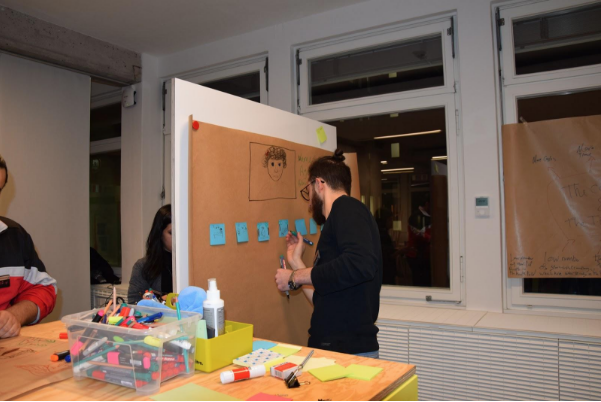
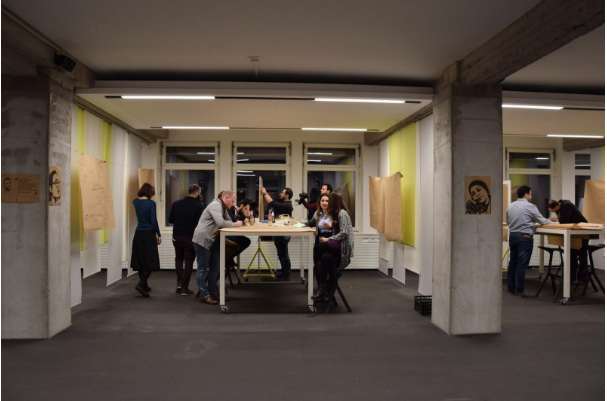
SINGA Business Lab Workshops (Source: SINGA Business Lab)
Jessica: What changed from the pilot phase to the second round now?
Suhayl: The first pilot ran from March – July 2017 and helped six newcomer entrepreneurs launch their business. The second round just started now with an idea phase and will end in May 2018, including 15 newcomer entrepreneurs in the program. During the pilot we had a simple selection process, we opened applications, selected the top six ideas and kicked off the program right away. In the second round we are scaling the program to 15 entrepreneurs and also offer an idea phase before the actual incubation phase. In this idea phase we include 30 applicants and take them through a series of workshops with a pitch event at the end. Based on these pitches, we will decide which 15 entrepreneurs proceed to the incubation phase. The reasons for adding this idea phase are simple. First, the intensive incubation phase requires a big commitment in terms of time and resources and the methods may not work for every entrepreneur. Through the idea phase we offer everyone the possibility to learn how we work. Second, the idea phase gives us a much better base to decide which entrepreneurs really have the potential to launch and run their business during the time of the program. Last, by opening the program to more people, we can also reach more newcomer entrepreneurs who may not be ready for a full incubation phase yet but can still benefit from the workshops during the idea phase.
Jessica: Can you give me an example of a successful newcomer entrepreneur from the pilot?
Suhayl: We have quite a diverse mix of entrepreneurs in the program. Broadly, you can identify two profiles though. First, there are newcomer entrepreneurs who already ran successful businesses in their home country. They then came to Germany and realized that things may not necessarily work the same way here. Their main aim for the program is to understand how to apply their experiences in the German ecosystem. Second, there are newcomer entrepreneurs who were at the beginning of their careers or just finished their studies when they came to Germany. Often, their journey and the experiences they made along the way inspired them to start their own business. Their main aim is to build innovative businesses and change the way business and society work today. These two types of entrepreneurs can really benefit from each other and supported each other a lot during the pilot.
Publikation lesen: Kooperationen zwischen Startups und Mittelstand
One example of a successful newcomer entrepreneur from our pilot is Dr. Fadi Alshalabi, founder and CEO of Niuversity. Fadi holds a Phd in Management in Higher Education and worked as a member of the academic staff at Damascus University, Syria and served as its Director of International and Cultural Relations. With Niuversity he build an online educational platform that teachers professional and employability skills like graphic design, online marketing or cloud computing in a live and interactive way in Arabic. His dream is to open doors for newcomers in Germany through tailored education.
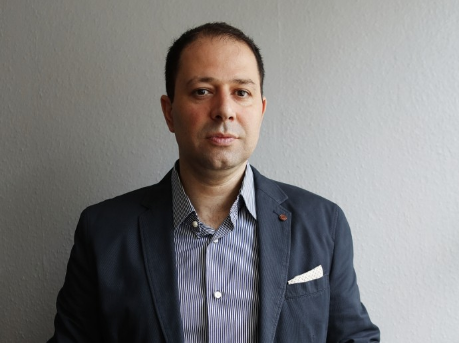
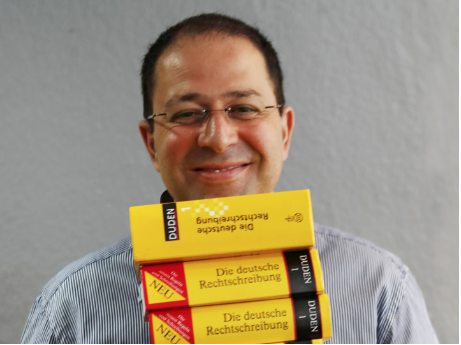
Fadi Alshalabi, founder and CEO of Niuversity. (Source: Startupyourfuture)
Jessica: What makes newcomer entrepreneurs different from any other entrepreneur in Berlin?
Suhayl: What makes newcomer entrepreneurs special is the fact that they are coming to Germany with a completely fresh perspective on our existing society and startup scene. It takes a certain time for them to fully arrive, learn the language and build a new life. Based on the experiences they make throughout this process, a lot of newcomer entrepreneurs have many interesting ideas on how to change the status quo in ways that we never could. In collaboration with local entrepreneurs and partners, they can really trigger a big move towards a more inclusive and innovative society.
Jessica: What are the biggest challenges you see for newcomer entrepreneurs?
Suhayl: The key challenges we identified during many interviews and conversations with newcomer entrepreneurs are a lack of professional support, a lack of knowledge of the local legal and regulatory frameworks, lack of access to local networks, and a lack of access to funding. This is how we build our five pillars for the incubation program.
While many challenges even within these pillars are very individual and differ from business to business, all newcomer entrepreneurs face bureaucratic challenges that can often be hard to handle. This can start with simple tasks such as setting up a business bank account with a German bank. We at SINGA Deutschland actively work on solving these issues on a more structural level. There are always opportunities for more people in the entrepreneurial ecosystem, from people within start-ups to established corporates, as well as public stakeholders, to get involved and make a difference, as structural changes will not happen from our program alone. We try and affect this structural change with a wide partner network, and I encourage anyone who shares this aspiration to get in touch with us so we can plan strategically, and make these changes together (www.singabusinesslab.de).
Jessica: How do you co-create the program with Newcomers?
Suhayl: They key reason why our program is so successful is that we are taking a very human centered approach to designing it. We are taking a very user centric approach in all methods we teach our entrepreneurs so it is even more important for us to fully live these methods ourselves. And who knows better about the challenges and needs of newcomer entrepreneurs than newcomer entrepreneurs themselves. Of course you always face the difficulty that some people may not know what they actually need until you give it to them. So we see it as our job at SINGA Deutschland to uncover the underlying needs for newcomer entrepreneurs and translate those into actionable programs. In order to do that we do regular interviews with entrepreneurs both inside and outside the SINGA Business Lab, actively observe the way they engage and feedback during our workshops and also engage with the alumni of our pilot to test, iterate and refine our program on a continuous basis. Additionally, we work very closely with our partners from the private sector as well as other NGOs to iterate our programs. Essentially, we view the SINGA Business Lab as a platform to co-create an inclusive innovation for our society.
| Dieser Beitrag spiegelt die Meinung der Autoren und weder notwendigerweise noch ausschließlich die Meinung des Institutes wider. Für mehr Informationen zu den Inhalten dieser Beiträge und den assoziierten Forschungsprojekten kontaktieren Sie bitte info@hiig.de. |
Dieser Beitrag spiegelt die Meinung der Autorinnen und Autoren und weder notwendigerweise noch ausschließlich die Meinung des Institutes wider. Für mehr Informationen zu den Inhalten dieser Beiträge und den assoziierten Forschungsprojekten kontaktieren Sie bitte info@hiig.de

Jetzt anmelden und die neuesten Blogartikel einmal im Monat per Newsletter erhalten.
Digitale Zukunft der Arbeitswelt
Freundlich, aber distanziert: Die unbeabsichtigten Folgen KI-generierter E-Mails
KI-generierte E-Mails sparen Mitarbeitenden Zeit und erleichtern den Arbeitsalltag. Aber verlieren wir dadurch unsere Kommunikationsfähigkeiten?
KI am Mikrofon: Die Stimme der Zukunft?
Von synthetischen Stimmen bis hin zu automatisch erstellten Podcast-Folgen – KI am Mikrofon revolutioniert die Produktion digitaler Audioinhalte.
Haben Community Notes eine Parteipräferenz?
Dieser Artikel analysiert, ob Community Notes Desinformation eindämmen oder ob ihre Verteilung und Bewertung politische Tendenzen widerspiegeln.
